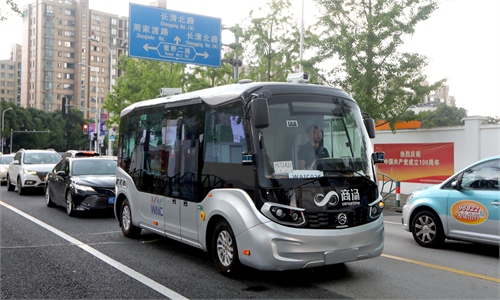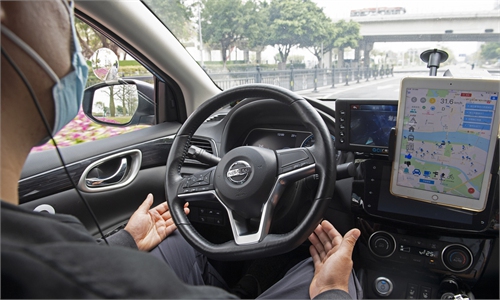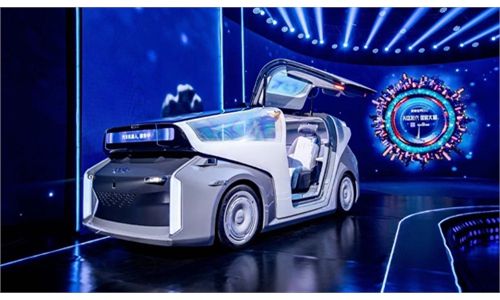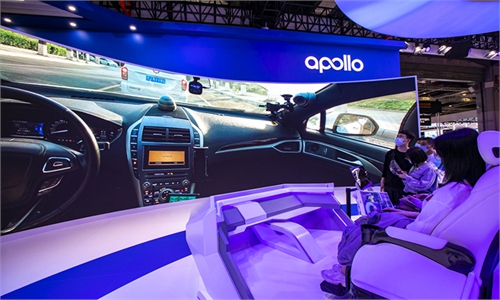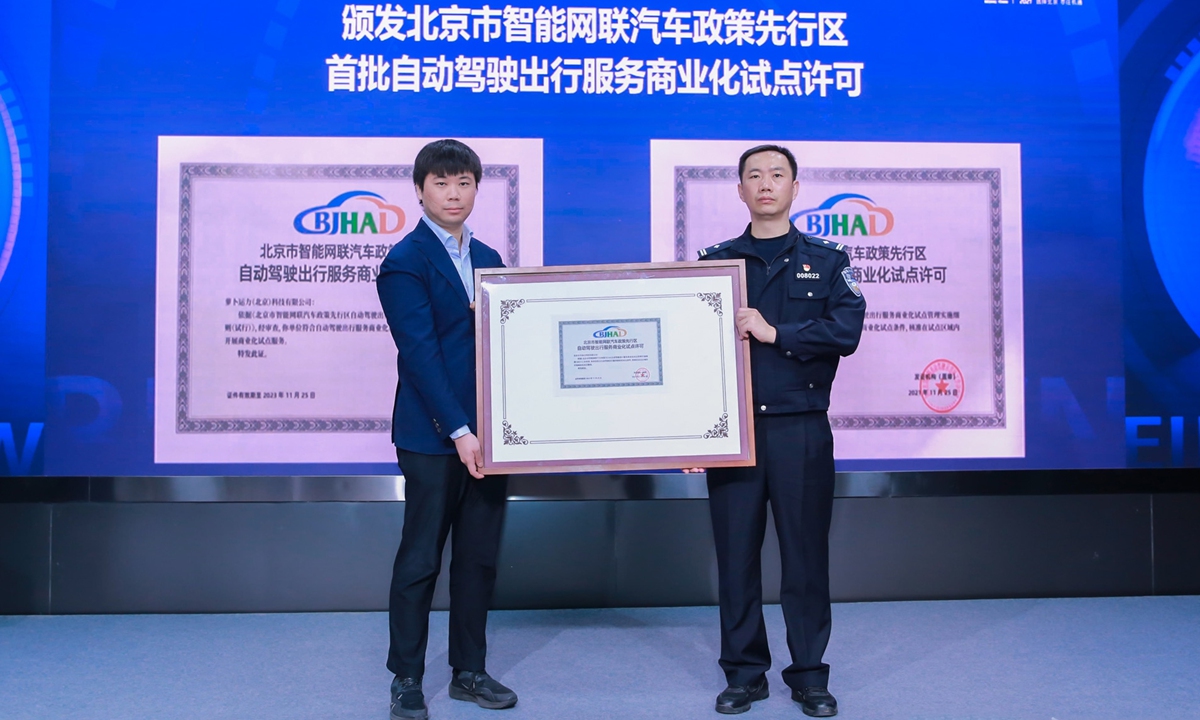
Beijing launched China's first pilot program for commercial autonomous driving travel services on Thursday, with many viewing the development as the end of the testing phase for autonomous driving and the beginning of broader market development.
The first group of enterprises that are permitted to undertake pilot commercial activity will be restricted to a 60 square kilometer area of the Beijing Economic and Technological Development Zone in southern Beijing.
These enterprises are also permitted to test market-based pricing mechanisms, although pricing logic, payment methods and other information relevant to passengers must be confirmed in advance, according to the head office of the Beijing high-level automated driving demonstration area.
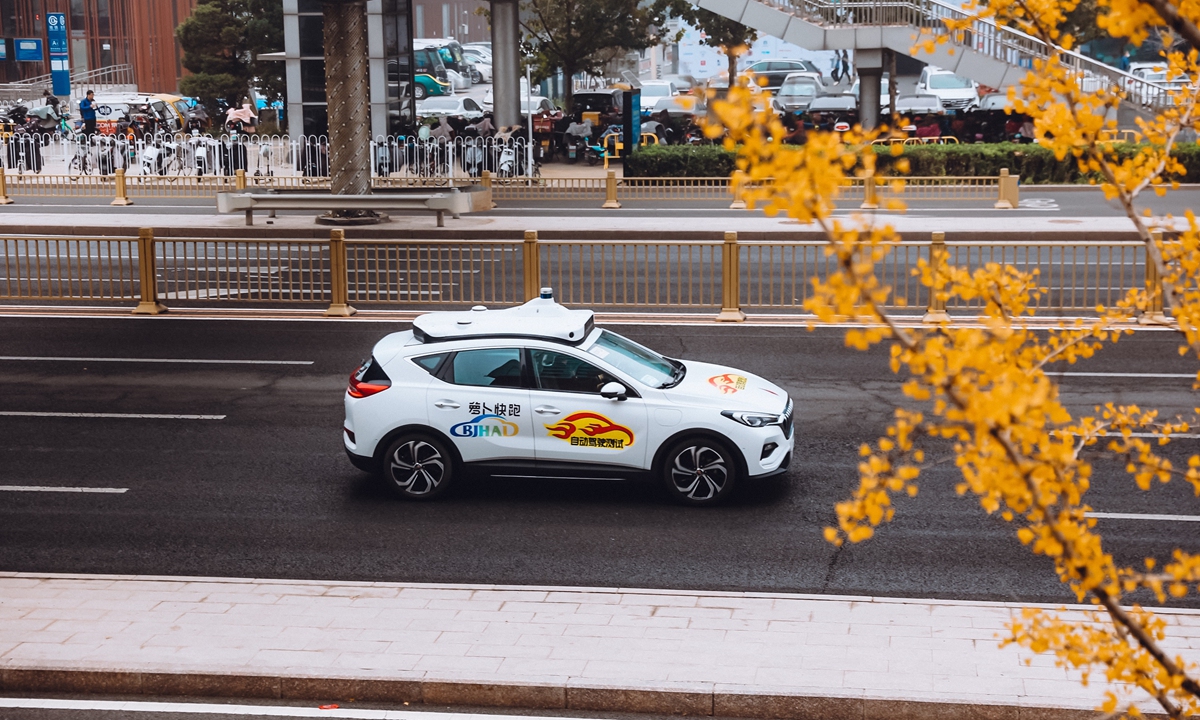
Baidu and Pony.ai were among the first service providers to receive authorization. Baidu said its Apollo Go, known as Luobo Kuaipao in China, was authorized to provide a paid service in the area.
Covering 350 kilometers of roads, the service is available every day of the week from 7 am to 10 pm. By using the Apollo Go app, users can locate one of 67 autonomous vehicles in operation and hail a ride.
"It is the right time for autonomous driving to be tested by the market, to see whether users are willing to pay for our services," Wang Shengnan, who is responsible for the autonomous driving program at Baidu, told the Global Times.
Auntie Yuan was the first user to test the Luobo Kuaipao. She said her son helped, and she took a short ride of just 2.1 kilometers and paid only 1.24 yuan ($0.19) after a discount.
Self-driving tech company Pony.ai, which is backed by Toyota Motor Corp, told the Global Times that it plans to have around 200 sites covered by its service, and that passengers can pay for rides via Alipay or WeChat.
Founded in 2016, the company had handled 500,000 bookings as of October. Founder Peng Jun said that policy, technology and public acceptance remain the key to the rapid adoption of autonomous driving.
Market watchers said that the number of autonomous cars in use and the designated operating area would both expand further to meet the needs of local residents, laying a foundation for the wider and more rapid development of commercial autonomous driving in China.
The industry will face challenges, including the costs of research and development, test mileage and commercial operations as well as the problems of technological maturity and the development of standard protocols, which will be the "hard bones" for the industry, Qian Xuesong, deputy professor from China University of Political Science and Law, said.
